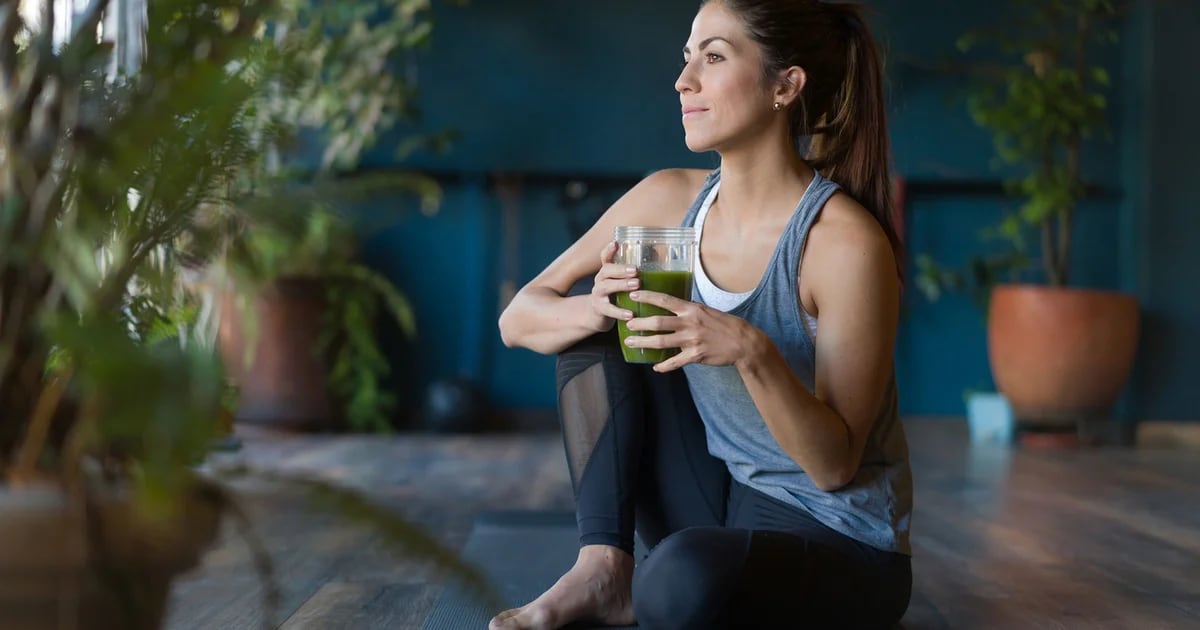Antioxidants are natural or man-made substances capable of slowing down or even blocking some types of damage to the body’s cells, such as aging.
According to a publication from the US National Cancer Institute, “antioxidants are chemical compounds that interact with free radicals and neutralize them, preventing them from causing damage.”
The body produces some of the antioxidants that it uses to neutralize free radicals, they are known as “endogenous antioxidants”. However, the experts stressed that “the body depends on external sources (exogenous), to obtain the rest of the antioxidants you need, and they highlighted that “these exogenous antioxidants are generally obtained from the diet”.
Present in many foods, mainly fruits and vegetablesare also available as dietary supplements to enhance the benefits of a healthy and balanced diet.
As seen, antioxidants have the function of slow oxidation reactions in cells from which harmful free radicals originate. That is why its role is key in reducing cardiovascular diseases, tumors and neurodegenerative diseases. They also act by boosting the immune system.
“Theories of aging point out, on the one hand, genetic programming with a predetermined response of each organism and, on the other, a non-genetic process that includes free radicals or oxidative stress,” as can be seen from the research work. Antioxidants: current perspective for human health.
Since 1956, the American academic Denham Harman from the University of Nebraska was already proposing “the relationship between free radicals and aging”. And given that human life expectancy could increase by decreasing the effects of the oxidative process, it becomes so important to include foods with these compounds in the diet.
As explained by the Brazilian nutritionist with a postgraduate degree in Clinical Sports Nutrition and Health Monitoring, and a specialist in Sports Nutrition, Edvânia Soares, “By making the body function better, antioxidants are essential for healthy longevity and prevent diseases, such as heart disease and even cancer.” In an interview with National Geographiclisted the benefits of consuming foods rich in antioxidants.
- They promote cardiovascular health. Foods rich in antioxidants are allies in maintaining cardiovascular health by reducing the oxidation of LDL cholesterol, known as “bad cholesterol”, a factor that favors the formation of plaques in the arteries, increasing the risk of heart disease.
- They improve the skin. In addition, these foods contribute to skin health, protecting it from sun damage and promoting wound healing, according to the nutritionist.
- They prevent diseases. Studies indicate that a diet rich in antioxidants can reduce the risk of chronic diseases such as heart disease, certain types of cancer, and Alzheimer’s disease.
- They improve vision. The specific nutrients present in these foods are linked to visual health and can even slow the progression of degenerative eye diseases, ensuring good eye health.
- They boost the immune system. Antioxidants are also beneficial for the immune system by protecting immune cells from oxidative damage, helping to keep it in optimal condition.
Additionally, for those who exercise regularly, antioxidants have the power to help muscle recovery and improve physical performance.
This is especially important because after age 30, the body loses between 3 and 8% of muscle mass per decade, and more after turning 60. This loss of muscle mass that occurs naturally with age It is known as sarcopenia and has a direct impact on bone health in adulthood.
As published The Telegrapha new study out of Japan suggests that antioxidants may play a role in maintain muscle mass and cognitive function as people age.
Likewise, supplementation with antioxidants is common in athletes in order to reduce the oxidative stress and thereby improve recovery and increase performance.
The same article in the English media pointed out that some antioxidants, such as vitamins C and E present in foods, they combat oxidative damage to the body’s cells. These antioxidants not only protect brain health by preventing neurodegeneration, but also, thanks to their anti-inflammatory properties, they can reduce tissue damage.
The process of formation of free radicals is linked both to physiological aging in general, and to some neurodegenerative diseasesmo Alzheimer’s and Parkinson’s in particular.
Antioxidants present in foods They can help prevent some of these processes, but also alleviate or slow down some of these diseases. This is demonstrated by the study The role of dietary antioxidants and their possible mechanisms in the treatment of Alzheimer’s diseaseaccording to which “since Oxidative stress is involved in pathophysiology of Alzheimer’s diseaseantioxidants represent a potential treatment for this pathology.”
According to a publication of the National Institutes of Health (NIH), “certain antioxidants may help reduce the risk of developing dementia.” But they clarified that always within the framework of a Lifestyle which includes a healthy diet, being physically active and socializing with other people, as well as getting enough sleep and doing activities that challenge the brain.
It was shown that the foods with the highest amount of antioxidants are fruits, vegetables and greens. And in that sense, a recent publication by the Chilean Nutrition Magazineedited by Chilean Society of Nutrition, Bromatology and Toxicologyassured that to meet the nutritional requirements that the body needs, it is enough to follow the recommendations of the so-called “healthy Harvard plate”which broadly recommends that 50% of daily intake be fruits and vegetables, accompanied by 25% healthy protein and 25% cereals and whole grains.
Among foods rich in antioxidants, specialists recommend including in the diet:
- Broccoli
- Blueberries
- Carrot
- Tomato
- Grapes
- Green Tea
- bitter cocoa
- Red pepper
- Almonds
And according to the coach and expert in healthy habits, graduate in Food Science and Technology and Spanish fitness instructor Natalia Calvet, “You don’t have to prepare huge green smoothies that include kilos of vegetables to be able to get as many antioxidants as possible together.” “Make sure of consume a variety of fruits and vegetables daily“Scraps of different colors will be the best way to ensure the consumption of the antioxidants necessary to combat free radicals,” he recommended.

